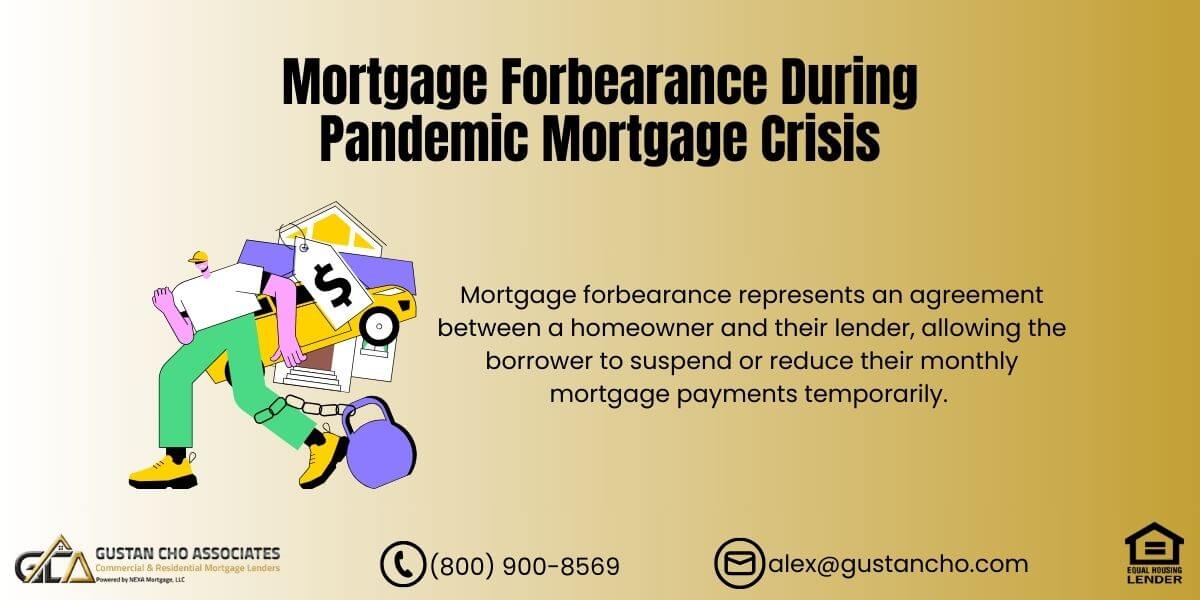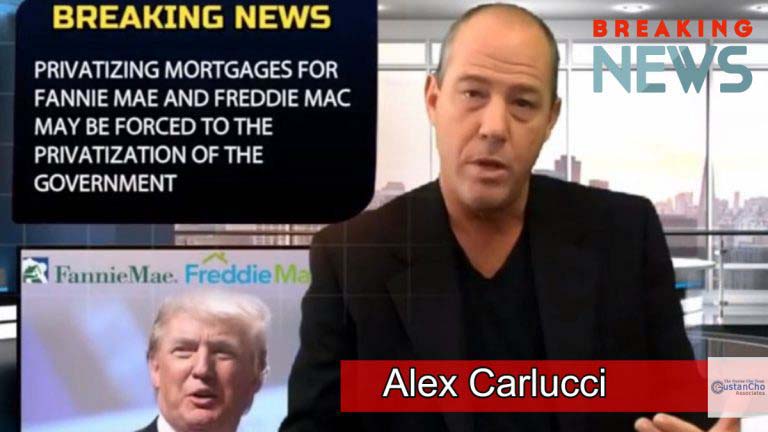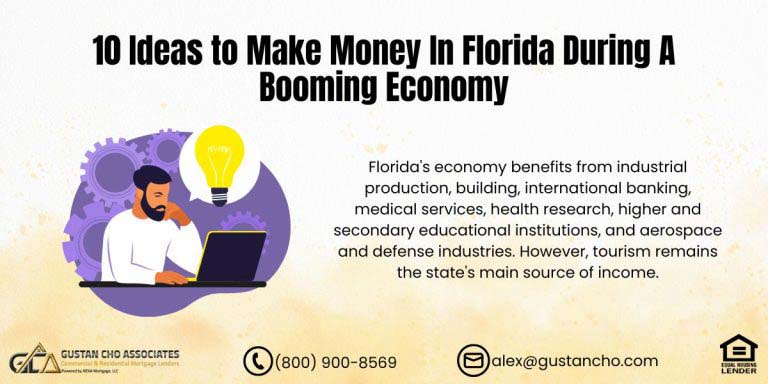Updated Guide: Mortgage Forbearance During Pandemic
When the COVID-19 pandemic hit, it upended the global economy, leaving millions of Americans in financial turmoil. Among those most affected were homeowners who faced sudden job losses and financial hardships, making it difficult to keep up with mortgage payments. The U.S. government and mortgage lenders introduced mortgage forbearance programs to prevent a massive wave of foreclosures.
As we look ahead to 2024, let’s revisit how these programs worked, what lessons were learned, and how homeowners can still manage their mortgages when facing economic challenges.
What Is Mortgage Forbearance During a Pandemic?
Mortgage forbearance represents an agreement between a homeowner and their lender, allowing the borrower to suspend or reduce their monthly mortgage payments temporarily. This arrangement can provide significant relief during challenging times. During the COVID-19 pandemic, this lifeline helped many homeowners avoid foreclosure. However, forbearance is not mortgage forgiveness—missed payments must be repaid later.
Key Points:
- Forbearance allows you to pause or lower mortgage payments for a set period.
- Interest continues to accrue during the forbearance period.
- Borrowers are responsible for repaying missed payments after forbearance ends.
Struggling with Mortgage Payments Due to the Pandemic? Mortgage Forbearance Could Help!
Contact us today to learn how forbearance works and how it can help you manage your mortgage payments.
How Did Mortgage Forbearance Work During the Pandemic?
In response to the economic impact of COVID-19, the CARES Act was passed in 2020. This act relieved homeowners with federally backed mortgages (such as those owned by Fannie Mae or Freddie Mac), allowing them to request up to 12 months of forbearance.
Eligibility Highlights:
- Federally backed mortgage holders could request an initial six-month forbearance.
- Extensions for an additional six months were possible if financial hardship continued.
- The process was simplified to prevent delays, requiring minimal documentation.
The focus on borrower relief will remain significant in 2024. Understanding forbearance terms and post-forbearance options can help you make informed decisions.
How Does Forbearance Affect Homeowners?
While forbearance provided immediate relief, it came with long-term implications. Homeowners needed to be aware of the following:
- Interest Accrual: Interest on your mortgage continued to build even though you weren’t making payments. This could increase the total amount you owe.
- Repayment Terms: At the end of the forbearance period, homeowners had options for repayment, such as:
- Lump-sum payment: Paying all missed payments simultaneously (though most servicers didn’t require this).
- Repayment plan: Adding some of the missed payments to regular monthly payments.
- Loan modification: Adjusting loan terms to extend the payment period or reduce the interest rate.
Lessons Learned: Common Misunderstandings
Many homeowners initially misunderstood forbearance, thinking it meant their payments were forgiven. This confusion led to financial challenges when repayment came due.
Updated for 2024: Mortgage servicers must now provide homeowners with clearer, detailed explanations about their options post-forbearance. Financial education initiatives have been launched to assist borrowers in grasping the advantages and disadvantages of forbearance.
Steps to Qualify for Mortgage Forbearance
If you are considering forbearance now or in the future, follow these steps:
- Contact Your Loan Servicer: Contact the organization where you make monthly mortgage payments. Inquire about the options for forbearance and the requirements for applying.
- Prepare Your Documentation: While pandemic-era forbearance required minimal paperwork, in 2024, expect to provide basic proof of financial hardship.
- Understand Your Agreement: Make sure you know:
- The length of the forbearance period.
- The repayment plan details.
- How interest accrual impacts your loan.
Post-Forbearance: What Comes Next?
When the forbearance period ends, it’s crucial to plan for repayment. Here’s what to expect:
- Repayment Options:
- Full Repayment: Pay the total missed payments at once (rarely required).
- Installment Plan: Add the missed payments to your monthly mortgage bill over a period.
- Deferral: Move missed payments to the end of the loan term.
- Loan Modification: Adjust loan terms to make payments more affordable.
Tip for 2024: Mortgage servicers have improved their repayment plan offerings, including more flexible deferral and modification options.
The Difference Between Forbearance and Loan Modification
It’s important to know that forbearance is different from a loan modification.
Forbearance:
- Temporary pause or reduction in payments.
- No change to loan terms.
Loan Modification:
- A lasting modification to the loan arrangement might include lengthening the loan duration or lowering the interest rate.
- They are typically used when the homeowner’s income has decreased long-term.
Navigating Financial Challenges During Forbearance
Many homeowners found themselves in a tighter financial spot after forbearance ended, especially if their income hadn’t fully recovered. In 2024, more homeowners are aware of:
- Budget Planning: Create a budget early in the forbearance period to prepare for higher payments later.
- Communication with Servicers: Keep open lines of communication with your mortgage servicer if your financial situation changes.
- Seeking Professional Advice: Collaborate with a financial consultant or housing advisor to examine all your possibilities.
Looking for Mortgage Forbearance Due to the Pandemic? We Can Help!
Contact us now to learn more about your options and how we can help you through this challenging period.
Impact on Refinancing and Future Loans
Forbearance can affect your ability to refinance or get a new mortgage. Here’s what to know:
- Credit Impact: During forbearance, servicers were prohibited from reporting missed payments as delinquent. However, your credit report may note that you were in forbearance, which could influence lenders’ decisions.
- Waiting Periods: Lenders may have a waiting period after forbearance ends before you can qualify for a new loan or refinancing. In 2024, most lenders require proof that you’ve made at least 3-6 months of on-time payments post-forbearance.
Preparing for Future Forbearance Requests
While COVID-19 highlighted the need for robust forbearance programs, economic challenges can arise anytime. Knowing how to prepare is key.
Steps for Readiness:
- Emergency Savings: Save enough to cover your living expenses for at least three to six months.
- Understand Your Loan: Examine the details of your mortgage to determine whether it is federally backed or privately held.
- Stay Informed: Keep up with new policies or assistance programs that may affect mortgage holders.
Key Takeaways for 2024
- Mortgage forbearance remains a vital tool for homeowners facing temporary financial hardship.
- Updated practices include clearer communication from servicers, better repayment plan options, and educational resources for borrowers.
- Plan early: If you anticipate needing forbearance, start conversations with your lender immediately.
Final Thoughts
Navigating mortgage forbearance during the pandemic taught many homeowners valuable lessons about financial resilience and planning. While the pandemic-era forbearance programs provided relief, they also highlighted the importance of understanding long-term financial commitments. As we move forward, being proactive, informed, and prepared can help you confidently manage any future challenges.
If you’re ready to take control of your mortgage situation or explore refinancing options, contact us today at 800-900-8569 or email us at gcho@gustancho.com. We are available 7 days a week, even on holidays!
Frequently Asked Questions About Mortgage Forbearance During Pandemic:
Q: What is Mortgage Forbearance During Pandemic?
A: Mortgage forbearance during the pandemic lets homeowners pause or reduce mortgage payments if they’re facing financial hardship due to COVID-19.
Q: How Did Mortgage Forbearance During Pandemic Help Homeowners?
A: It helped homeowners avoid foreclosure by allowing them to skip or lower payments if they lost income or their jobs during the pandemic.
Q: Do I Need to Repay What I Missed During Mortgage Forbearance During Pandemic?
A: Yes, you’ll need to repay the skipped payments. Forbearance is not forgiveness; it just delays payments until you’re in a better position.
Q: Will My Interest Keep Adding up During Mortgage Forbearance During Pandemic?
A: Yes, interest usually continues to add up on missed payments, so you might end up owing a bit more when the forbearance ends.
Q: What are my Options for Repaying Missed Payments After Mortgage Forbearance During Pandemic?
A: You can often repay in a lump sum or smaller installments or even add the missed amount to the end of your mortgage term.
Q: Can I Still Get Mortgage Forbearance if I’m Having Trouble Now?
A: COVID-19-specific programs may have ended, but many lenders still offer hardship forbearance options. Contact your lender to learn about current assistance programs.
Q: Will Mortgage Forbearance During Pandemic Hurt my Credit Score?
A: During the pandemic, missed payments were not usually reported as late. However, your credit report might show you were in forbearance, which some lenders may consider.
Q: Is Mortgage Forbearance the Same as Changing my Loan Permanently?
A: No, forbearance is temporary relief. Loan modification, however, permanently changes the loan terms, like lowering your interest rate.
Q: How do I Know if I Could Apply for Mortgage Forbearance During Pandemic?
A: During COVID-19, federally backed loans were eligible for forbearance, so eligibility depended on your loan type. Check with your lender for any remaining relief options.
Q: What Should I do When Mortgage Forbearance Ends?
A: Prepare for repayment by setting up a budget or discussing your options with your lender to find a plan that works for you.
Need Help with Mortgage Payments During the Pandemic? Forbearance Might Be the Answer!
Reach out today to learn if forbearance is the right option for you.









